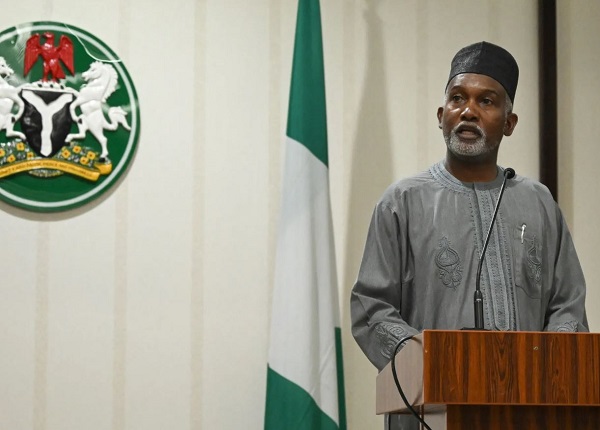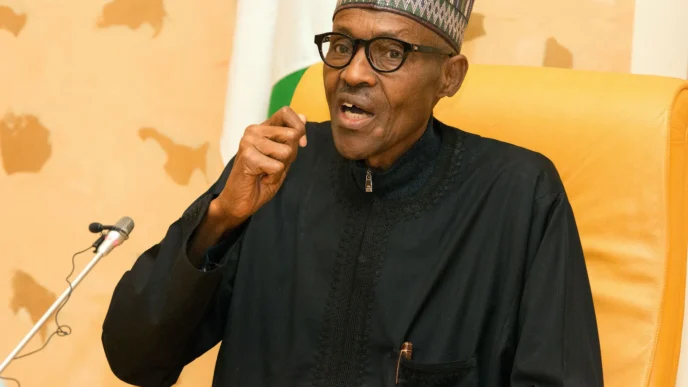The Nigerian Ministry of Foreign Affairs has officially debunked viral reports claiming that Saudi Arabia has placed a visa ban on Nigerians and 12 other countries.
According to a statement released by the ministry, the viral memo currently circulating online has been confirmed as false by Saudi authorities.
The memo had listed Nigeria among other countries, including Egypt, India, Tunisia, and Pakistan, allegedly banned from entering the Kingdom from April 13, 2025.
Speaking through his Special Assistant on Media and Communications Strategy, Alkasim Abdulkadir, the Minister of Foreign Affairs, Yusuf Tuggar, assured the public that the claims were inaccurate.
“The Ministry of Foreign Affairs wishes to categorically refute the false claims circulating online, alleging that Nigeria has been included in a list of countries facing an entry ban into Saudi Arabia from April 13, 2025,” the statement read.
Furthermore, the Saudi Tourism Centre was said to have confirmed that the memo being circulated was not official.
The centre stated clearly that no such travel ban exists for Nigeria or any of the other countries mentioned.
Visa ban reports for Nigerians spread widely on social media platforms on Monday, raising concerns among citizens planning to travel to Saudi Arabia.
However, the ministry has now provided much-needed clarity.
According to the statement, “The Saudi Arabian authorities have officially denied the validity of this viral memo, which falsely claims that several countries, including Nigeria, Egypt, India, Pakistan, and others, would be subject to visa restrictions and an entry ban.”
Clarifying the current visa policies in place, the statement added that restrictions only apply to tourist visa holders during the upcoming Hajj pilgrimage season.
“For clarity, the only restriction applies to tourist visa holders during the Hajj season. Individuals holding a tourist visa are not permitted to perform Hajj, enter, or stay in Makkah between April 29 and June 11, 2025 (corresponding to 01 Thul Quda to 14 Thul Hijjah 1446 AH).
The Hajj visa remains the sole authorised entry permit for pilgrims during this period,” it explained.

The ministry urged Nigerians to stop spreading unverified news, stressing the importance of getting travel information from proper sources.
“Spreading unverified information can cause unnecessary confusion and disrupt travel plans. For accurate and up-to-date information, travelers are advised to consult official Saudi government sources, the Nigerian Ministry of Foreign Affairs, or accredited diplomatic channels,” it added.
The earlier viral report had claimed that Saudi authorities had temporarily suspended visa applications from 13 countries.
The list reportedly included Egypt, Algeria, Sudan, Ethiopia, Iraq, Morocco, Tunisia, Bangladesh, Pakistan, Jordan, Yemen, India, and Indonesia.
It was alleged that this suspension was introduced as part of preparations for the Hajj pilgrimage.
The supposed reason was to avoid safety risks from unregistered pilgrims entering Saudi Arabia without permits.
However, the Ministry of Foreign Affairs insisted that such information lacked credibility.
It emphasized that no new travel restrictions had been imposed on Nigerian citizens.
Therefore, citizens have been encouraged to stay informed and verify news from authorized platforms.
Travelers were also reminded that only those with valid Hajj visas will be allowed into Makkah during the designated pilgrimage window.
The ministry’s response was seen as timely, especially as many Nigerian Muslims are making preparations for this year’s pilgrimage.
As of now, the only confirmed rule from the Saudi government is that tourist visa holders will not be allowed into Makkah during the Hajj period.
The Foreign Ministry has pledged to keep citizens informed of any new travel guidelines.
Therefore, for travelers and families planning religious or personal trips, this official clarification offers relief and encourages more responsible information-sharing practices.












